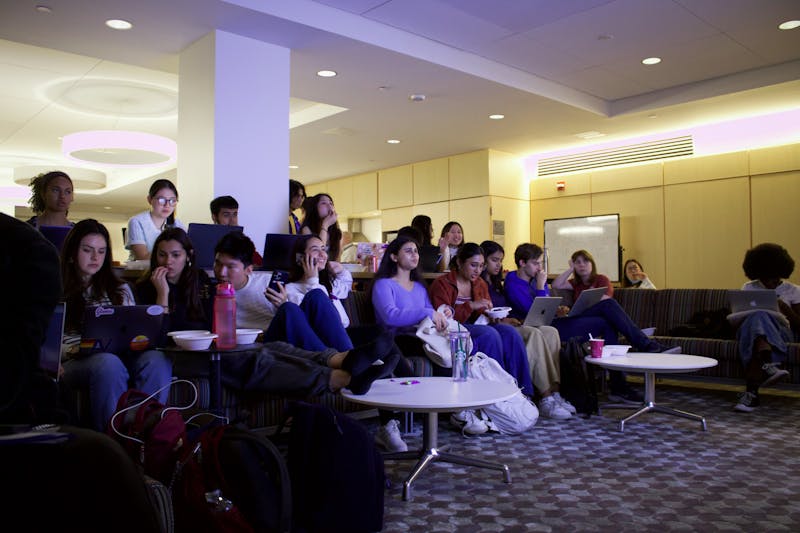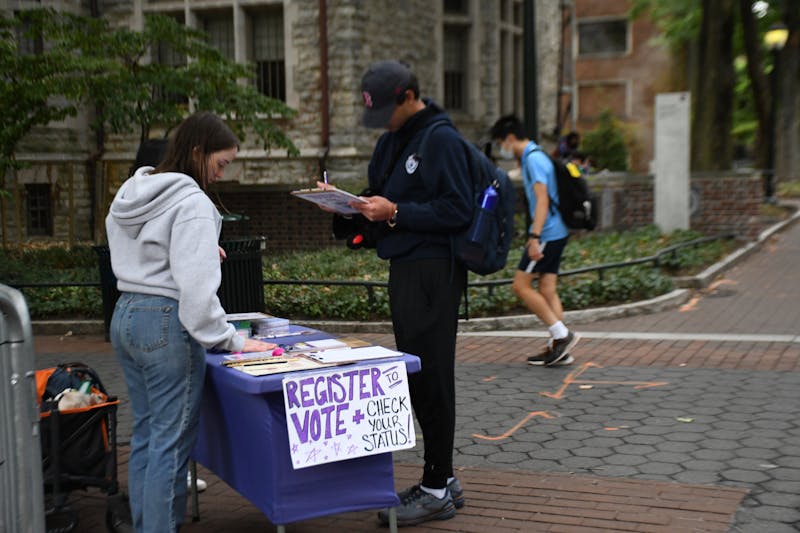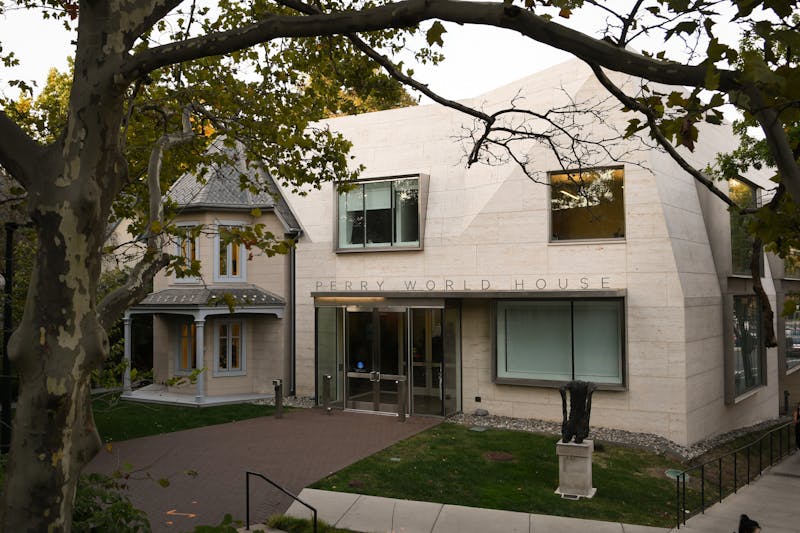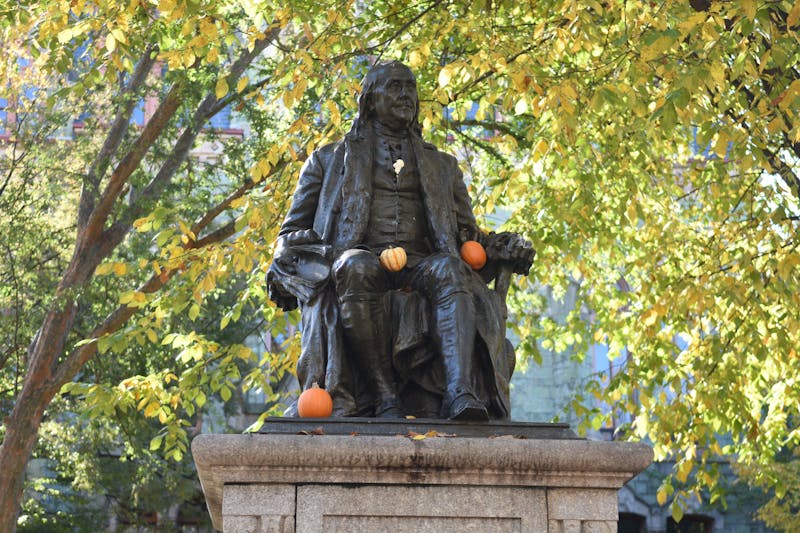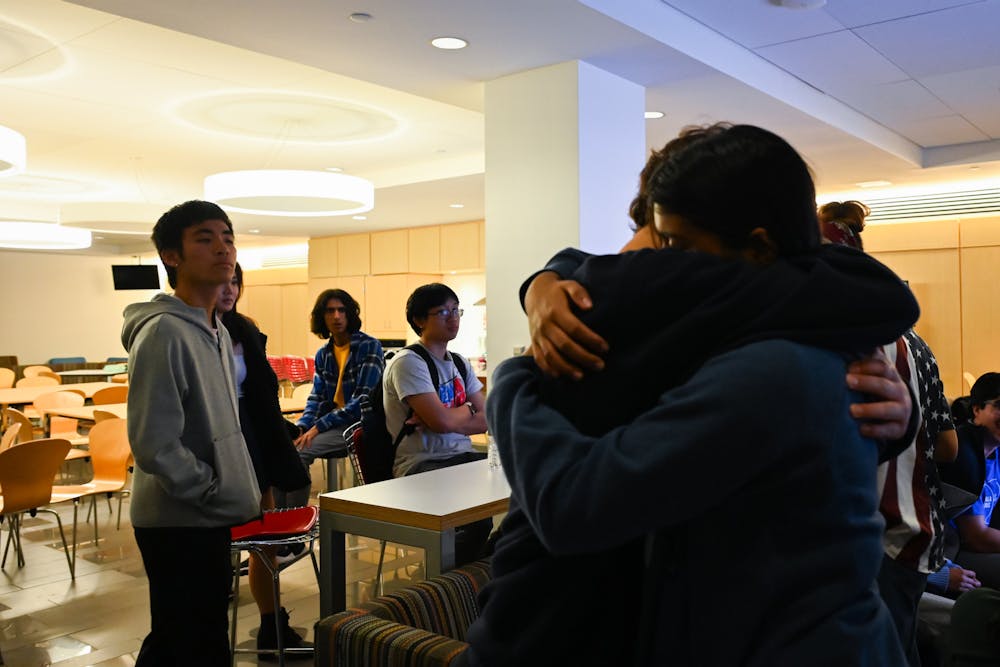
Penn students have struggled to come to the terms of Tuesday's decisive presidential election in which 1968 Wharton graduate was elected to a second term.
After former President, and President-elect Donald Trump's victory over Vice President Kamala Harris on Tuesday, students expressed grief and dismay about the results. Many are grappling with what a second Trump presidency means for the United States, especially after his victories in swing states like Pennsylvania and Republican successes in the U.S. Senate.
For many Penn students, the post-election consensus was a feeling of devastation. College sophomore Anna Maria Flausino described her “incredible disappointment” with the results, adding that, as a first-generation American, she has newfound concerns about attending Trump's alma mater.
“I realized that the only way I could satisfy my anger about the system was to become an agent of change within it,” she said. “Having the privilege of pursuing my passions at one of the most prestigious universities in the country has made the election of Trump twice as disturbing. How can a school that educated the man who threatens my rights also educate me of the ways the system he represents is unjust?”
Flausino also expressed concerns about the ramifications of a second Trump administration on foreign policy, citing Trump’s “isolationist perspective” as a “direct threat to the safety of the land of my ancestors [in Latvia].”
College first year Rachel Erhag, an international student from Sweden, echoed Flausino’s concerns about global politics.
“We followed the 2016 election at my old school in Sweden and when Trump won, I was in shock,” she told The Daily Pennsylvanian. “It didn’t feel real to me because I was so removed from the United States. But now that I’m here for university, it is so much more tangible. Now I’m able to properly grasp the extent of his influence, not only in the U.S., but in the world.”
Erhag said that — as someone who was hoping for Harris to win — she feels discouraged about her future at Penn and her time in the United States. She added that she finds it "disappointing and worrying" that Trump will be the president for the remainder of her time at the University.
College first year Amy Tran — who told the DP that she "grew up very Catholic" and remains involved with the religious community at Penn despite not identifying as "fully Catholic in the traditional sense" — said that her support for reproductive rights is not based "off of just one subset of beliefs."
"My morals and values may have been influenced significantly by Catholicism, but not all Christians will think the same thing," she said, voicing concern for her future daughters' rights under a Trump administration.
"I'm not just thinking about myself, but thinking about a generation," she said. "I am afraid for what could happen, not only if those ideals are spread and they're seen as acceptable and as the face of our leadership, but also what would happen if I were to have children, or if they were to have children, and something were to happen [to them].”
Penn Democrats wrote in a statement to the DP that they are "deeply saddened by the news and terribly frightened by a second Trump presidency."
"We would like to thank all the members of our community who tirelessly fought for freedom and democracy," they wrote. "We respect the result, and we will fight on."
Many students were surprised by the rapid sequence of state-level Trump victories, especially in highly-contested swing states. A lifetime resident of Philadelphia, Flausino said she "expected more" from Pennsylvania and that "democratic mobilization fell short," despite record-high voter turnout at Penn on Election Day.
“It was incredibly fulfilling to see the majority of my peers at Penn, coming from various backgrounds, put their support behind Kamala,” Flausino said. “The movement towards a better future was motivating. However, to see hate prevail painted a larger picture."
Several, including Tran, expressed feelings of retrospective lucidity — characterizing Penn and the surrounding city as a “blue bubble.”
Others, like Erhag, were not surprised by Trump’s victory.
“I’ve always thought that the U.S. is a little bit unhinged,” she said. “Although I had my hopes that Harris would enter office, I always knew that Trump had a bigger chance. It's not really as if my opinion has changed — more that my opinions are confirmed.”
Not all Penn students, however, were dismayed by the results. Wharton sophomore and College Republicans member Finn Broder wrote to the DP that the election results were a point of clarity and a reason for pride.
“While Americans from all walks of life have sharply conflicting viewpoints on President-elect Trump, last night could not have been a stronger rebuke of today’s Democratic Party agenda,” Broder said. “As someone who has been deeply concerned with polarization in America, I am very pleased that Mr. Trump’s moderate and common-sense platform — when compared to his opponent — prevailed across the country.”
Broder said that he was satisfied with Trump’s first administration and is optimistic that a second term will “build on his successes to effectively govern the United States and lead us to new heights.” He also stressed the importance of bipartisanship and shared his hope that “the Democratic minorities in Congress will serve to further unify the nation by contributing to policies which we can all be proud of.”
College senior and Penn College Republicans vice president Chloe Hunt reflected on the difficulty of navigating polarized reactions to the election results and emphasized the importance of tolerance and community at Penn in its aftermath.
“I think it’s impossible to celebrate a victory when I see so many friends and family who are grieving and super worried about the future, and rightfully so,” she said. “I hope that us Republican-leaning independents can navigate this time with a lot of compassion and empathy for the real struggles that many Americans are facing, beginning with kindness and mutual understanding on campus.”
The day after Trump won his first presidential election in 2016, professors cancelled classes and exams for students distracted by a long election night, and representatives from student organizations expressed fear and uncertainty to then-Penn president Amy Gutmann at a University Council meeting. Hundreds of Penn students and staff also gathered for a solidarity walk in response to Trump’s victory.
In the weeks following Trump's 2016 victory, Penn community members faced hateful and racist actions, and a group of protesters marched to Franklin Field during a football game in response.
This year, several campus centers publicized wellness efforts on Wednesday to help students destress after election night. The Penn Women's Center, in partnership with Restorative Practices @ Penn, organized "Election Reflection Drop-In Hours" from 3 p.m to 5 p.m. on Wednesday in the PWC Garden, aiming to offer “a supportive, non-partisan space for students to de-stress” following election night. The Penn LGBT Center also hosted a “Decompression Drop-in Space” from 10 a.m. to 6 p.m.
Despite Harris' defeat, Flausino is reflecting on what a Harris administration could have looked like.
“I saw myself in Kamala,” Flausino said. “The American dream that motivated my parents to come to America is no longer the same.”
The Daily Pennsylvanian is an independent, student-run newspaper. Please consider making a donation to support the coverage that shapes the University. Your generosity ensures a future of strong journalism at Penn.
Donate








